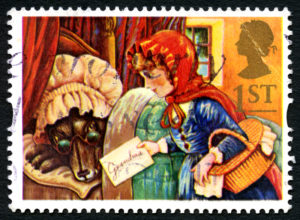Women Wolves and Wambach
I’ve been thinking a lot lately about the stories we grew up with–and about the lessons we were supposed to glean from them. Some of the lessons were good ones and still hold their worth.
“The strength of the pack is the wolf, and the strength of the wolf is the pack,” is one of them.
A menudo, la disfunción eréctil está causada por una mala circulación sanguínea en los órganos pélvicos. En un hombre sano, la excitación sexual provoca un intenso flujo sanguíneo hacia el pene, lo que hace que el órgano se endurezca y aumente considerablemente su tamaño haga clic en este enlace. La erección dura hasta la eyaculación, entonces los canales venosos se abren y la sangre fluye hacia fuera – el pene está en reposo.
Rudyard Kipling wrote these words in the late 1800s in The Second Jungle Book, and they ring true today. It may be difficult to wrap our heads around them, however, because of what the wolf has come to mean.
Maybe It’s Time to Question the Old Tropes We Hold So Close
The wolf, the wild relative of our beloved pet dogs, has gotten a bad rap in Western culture. He (the “Big Bad one” is most often portrayed as male) will use his sharp intelligence to get you between his sharp teeth if you’re not careful.
Translation: You will face incredible danger, ladies, if you venture off the conventional path—just ask Little Red Riding Hood.
But maybe it’s time to question the old tropes we hold so close.
Abby Wambach does just that in her new bestseller Wolfpack. She turns the Big Bad mythology on its head!

“Everything in a Wolf’s Nature Tells It to Belong to Something Greater Than Itself: A Pack”
But why wolves? What is it that they can teach us?
It seems, quite a bit. Wolves, highly intelligent, highly social animals, live together in packs—complex social units that value both the individual and the collective. Members of the wolf pack have each other’s backs. They care for sick and older wolves, educate their pups, and work together to hunt and to defend their territory.
According to the nonprofit organization Living with Wolves, “Everything in a wolf’s nature tells it to belong to something greater than itself: a pack. Like us, wolves form friendships and maintain lifelong bonds. They succeed by cooperating, and they struggle when they’re alone. Like us, wolves need one another” https://www.livingwithwolves.org/the-social-wolf/.
Be Bold, Empower Yourself, and Work to Empower Your Pack
Abby Wambach, retired soccer star extraordinaire and current activist for “equality and inclusion” definitely sees the value in the ways of the wolfpack. In Wolfpack: How to Come Together, Unleash Our Power, and Change the Game, Wambach encourages women to “Be. The. Wolf.” Be bold, empower yourself, and work to empower your pack.
(If you haven’t yet, you may want to check out her commencement speech to the Barnard graduating class of 2018 on which the book is based: https://barnard.edu/commencement/archives/2018/abby-wambach-remarks.
I wrote a bit about Wambach and her take on women and gratitude in last week’s blog post https://dianegottlieb.com/gratitude-is-not-enough/. This week, I’m going deeper by highlighting five of her “8 New Rules That Will Change the Game.”
I’ve added my own questions (in bold) under each of these new rules. I hope you will take some time and consider how we as women in rediscovery mode can add to the conversation and change the game for ourselves and for all women to come.
Rule Number One: “You Were Always the Wolf.”
Like most of us, Wambach was raised to believe in the Little Red Riding Hood myth: girls must stay on existing paths if they want to avoid “the wolf.”
This never sat well with Wambach, however. Somewhat of a rebel, she often found herself asking difficult questions about how to lead her most true and meaningful life.
Wambach’s resolve was tested for real in high school, when she fell in love with another young woman. Raised in a deeply religious family in which being gay would not fly, Wambach struggled. The question of her teenage years became, “Why can’t I love who I want to love?” Wambach realized that she could.
“There Is a Wolf Inside of Every Woman”
 In her 20s, Wambach’s question shifted: “Why can’t I become what I want to become?” She wanted to play soccer professionally, but professional women’s soccer was still so new. Wambach is grateful to the women who came before her who did “not Little Red Riding Hood their way through life” but, instead, paved new paths for women like her to follow, allowing her to follow her dreams.
In her 20s, Wambach’s question shifted: “Why can’t I become what I want to become?” She wanted to play soccer professionally, but professional women’s soccer was still so new. Wambach is grateful to the women who came before her who did “not Little Red Riding Hood their way through life” but, instead, paved new paths for women like her to follow, allowing her to follow her dreams.
Over the years, Wambach learned that she, too, was never Little Red Riding Hood but was, instead, the wolf. She believes we would all benefit by accessing that part of us: “There is a wolf inside of every woman. Her wolf is who she was made to be before the world told her who to be. Her wolf is her talent, her power, her dreams, her voice, her curiosity, her courage, her dignity, her choices—her truest identity.”
- How have you been “Little Red Riding Hooding” through your own life?
- Who is your inner wolf?
- How can you acknowledge that wolf and let her know that it’s time to change the path?
Rule Number Two: “Be Grateful AND Ambitious” or “Be grateful for what you have AND demand what you deserve.”
Wambach illustrates this concept with a powerful story: When Wambach retired from soccer, ESPN chose her and two other retiring athletes—Kobe Bryant and Peyton Manning— as recipients of their annual Icon Awards.
Wambach felt so grateful for the honor. To be on the stage with those two accomplished male athletes was a sign that women in sports had finally “made it.”
Yet, when they left the stage, Wambach realized that although all their careers had been similar, their futures would not be: “Kobe and Peyton were walking off that stage and into their futures with something I didn’t have: enormous bank accounts. Because of that,” she writes, “they had something else I didn’t have: Freedom. Their hustling days were over. Mine were just beginning.”
“My story,” Wambach says, “is every woman’s story.”
Women and Wages
Women make up almost half of our country’s workforce and are the sole or co-breadwinners of half the American families with children. More women than men receive college and graduate degrees. Yet, according to the Institute for Women’s Policy Research (IWPR), the average woman earns considerably less than her male counterpart: “In 2017, female full-time, year-round workers made only 80.5 cents for every dollar earned by men, a gender wage gap of 20 percent.”
IWPR has been tracking the gender wage gap over time. If the same slow pace of change continues as it has over the past fifty years, “it will take 40 years—or until 2059—for women to finally reach pay parity. For women of color, the rate of change is even slower: Hispanic women will have to wait until 2224 and Black women will wait until 2119 for equal pay.”
https://iwpr.org/issue/employment-education-economic-change/pay-equity-discrimination/

Women, Pay Gaps, and Gratitude
Wambach has some strong words about the pay gap, women, and gratitude: “What keeps the pay gap in existence is not just the entitlement and complicity of men. It’s the gratitude of women. Our gratitude is how power uses the tokenism of a few women to keep the rest of us in line.”
Should we be grateful when a few token women “make it?” Or should we demand that all women be given that opportunity? Wambach is in strongly in favor of the latter, and she makes this call to her wolfpack:
“Be grateful. But do not JUST be grateful. Be grateful AND brave … ambitious … righteous … persistent … loud … Be grateful for what you have AND demand what you deserve.”
Amen!
- When have you felt grateful for something that you worked hard for, something that you earned?
- Was the “grateful balance” off a bit?
- Did being grateful take precedence over being proud of your accomplishment?
Being grateful is wonderful, but it is not enough.
- How can you challenge yourself to be grateful AND …?
- What would that look like?
Rule Number Three: “Lead from the Bench,” or you don’t have to wait for permission to become a leader. “Lead now—from wherever you are.”
 One of Wambach’s responsibilities as co-captain of the U.S. Women’s National Soccer Team was to help decide which women would start in the games. At thirty-five and having “lost a step,” Wambach decided that she should not be in that starting line-up but would come off the bench. As the world’s all-time leading scorer (for both men and women) Wambach had always started—and led her teams to victory. She knew how to lead on the field. The deep lesson she learned that year was how to lead from the bench.
One of Wambach’s responsibilities as co-captain of the U.S. Women’s National Soccer Team was to help decide which women would start in the games. At thirty-five and having “lost a step,” Wambach decided that she should not be in that starting line-up but would come off the bench. As the world’s all-time leading scorer (for both men and women) Wambach had always started—and led her teams to victory. She knew how to lead on the field. The deep lesson she learned that year was how to lead from the bench.
But how does “leading from the bench” translate off the field? What does it look like?
Wambach challenges all women to be leaders and invites us to embrace a new definition of leadership. Leaders, according to Wambach, are not just the people with seats at the biggest table. They are volunteers, parents, supportive friends. Leadership is expressed in kindness, in setting boundaries that “prove to the world that you value yourself. Leadership is taking care of yourself and empowering others to do the same.”
It’s O.K., Wambach believes, to be disappointed when you “feel like life’s benched you. What you aren’t allowed to do is miss your opportunity to lead from the bench.”
- In what ways do you lead from the bench?
- What extra acts of kindness or advocacy for yourself or others can you challenge yourself to do … today?
Rule Number Four: Make Failure Your Fuel
As a competitive athlete, Wambach knows the value of failure. Failure is the fuel that has inspired her and her teammates to reach higher next time. Yet, Wambach believes “Women haven’t yet accessed the power of failure … Worst-case scenario, we view failure as proof that we were always unworthy imposters.”
This is not the case with men, however. “Men have been allowed to fail and keep playing forever. Why do we let failure take us out of the game?”
That, Ms. Wambach, is a great question!
“Imperfect men,” Wambach states, “have been empowered and permitted to run the world since the beginning of time. It’s time for imperfect women to grant themselves permission to join them. …The world needs to see women take risks, fail big, and insist on their right to stick around and try again. And again. And again.”
Yes!
Here’s one of my favorite quotes about failure by the late innovative music teacher and author Eloise Ristad: “When we give ourselves permission to fail, we, at the same time, give ourselves permission to excel.”
It’s time to give ourselves permission to fail!
- What messages were you given about failure?
- When has failure made you feel like you were the failure?
- What did you lose when you chose to give up? What was the cost?
- How can you challenge yourself to fail and learn, fail and get up, fail and get fueled?
Rule Number Five: Champion Each Other
 Have you been taught that it’s impolite to point? Me too! But Wambach wants women to rethink this rule. Whenever she scored a goal in soccer, Wambach immediately began to point—at the teammate who earned the assist, at the defender who protected her, at the midfielders, the coaches, the players on the bench. “I’ve never scored a goal in my life without getting a pass from someone else,” she claims, and she always wanted every woman who played a part to get some of the credit.
Have you been taught that it’s impolite to point? Me too! But Wambach wants women to rethink this rule. Whenever she scored a goal in soccer, Wambach immediately began to point—at the teammate who earned the assist, at the defender who protected her, at the midfielders, the coaches, the players on the bench. “I’ve never scored a goal in my life without getting a pass from someone else,” she claims, and she always wanted every woman who played a part to get some of the credit.
But we will not always be the ones who are scoring the goals. When we’re not, Wambach believes that we should be rushing towards the goal scorer with hearty congratulations:
“When a woman scores,” Wambach writes, “there are only two options for the Wolfpack: We’re either rushing or we’re pointing.”
Let’s “Build a Bigger Table”
Rushing or pointing. Why is this so difficult for so many of us? The culprit is scarcity—the belief that there is not enough to go around, that when one person gets a piece of the pie, there is less left for the everybody else. Yet, Wambach knows that “power and success and joy are not pies. We believe that love, justice, success, and power are infinite and meant to be accessible to all.”
She adds: “Maintaining the illusion of scarcity is how power keeps women competing for the singular seat at the old table, instead of uniting and building a new, bigger table.”
I agree. It’s time to celebrate other women’s success, and when we’re in the power seat, to invite other women to join us.
- What role has the belief in scarcity played in your life?
- Are you ready to let it go?
- What would a life without scarcity look like?
- Where in your life can you do more “rushing and pointing?”
- How can you help to build “a bigger table?”

Abby Wambach’s Wolfpack has truly inspired me. I have always been a firm believer in the power of connecting to other women, but Wambach’s examples have brought this home in a new way. Wambach’s positive message has also given me hope in a time when hope is hard to come by. I am grateful to Wambach AND am committed to rise to her challenge. I will own my own successes, celebrate those of others, and use failure as fuel.
Women. WE. ARE. THE. WOLF. And it’s time to fully embrace our pack!
So … I would LOVE to hear your thoughts—about Wambach and wolves, about being a member of a pack. And I’d also love to hear answers to some of the questions I posed! Please leave a comment or send me an email, and if you know any women who could benefit from the Wolfpack perspective, please send them the link—or feel free to share on social media!
Have a wonderful week, everyone!
Diane



Maybe I’m a bit naive but I adored Red Riding Hood. I thought it was a lesson on “beware of wolves in sheep’s clothing”. That lesson came in quite handy a few times in my life. I never felt oppressed by fairytales or folklore. Love the pack analogy though because I always felt a sense of community was important and beneficial. Stronger together than apart is a motto I live by each week in Families support group.
Love it, Dorothy! So many ways to read the same story!! Stronger together and packs! We can def agree on that!
Hi Diane,
Once again, your column was a topic in my analysis. I read you and than go to a 9 AM appointment.
Take away (there were many!) for me was the importance of the pack! In Buddhism, the Sanga (not sure how to spell) meaning the community and how important it is.
Thanks for a rich post!
Nicky
Thanks, Nicky! I will def check out “the Sanga”! Love that the pack made it into your analysis session–would love to hear more about that! Would also love to hear what community is all about for you.
This is such an inspiring read. I usually cited wolves as an example for their pack organization and caring for all the members when I worked as a guidance counselor. Young children were mesmerized about that concept and were able to see Big Bad Wolf in another light. Hopefully, I was able to chipped away some of the myth and influence them with the idea of community and caring.
Yes, let’s all connect with our she-wolf and happily rule our days.
Thanks, Isabel! And how inspiring you are! I LOVE how you “chipped away some of the myth” and taught kids about “community and caring.” Yeah for the she-wolf and for “happily ruling our days!”